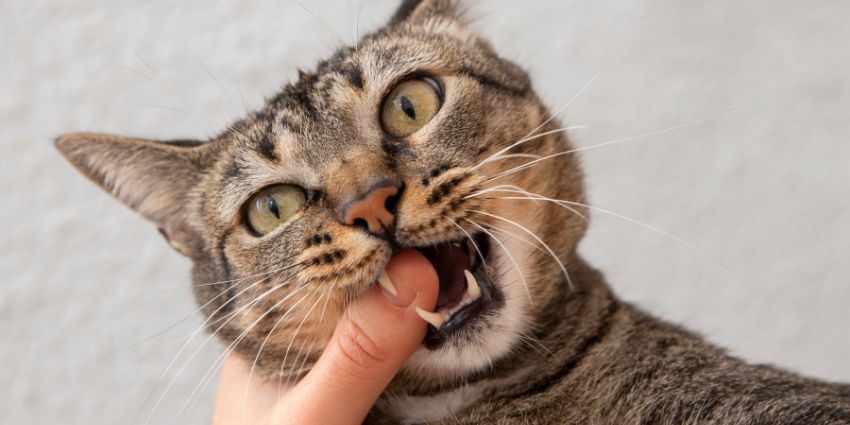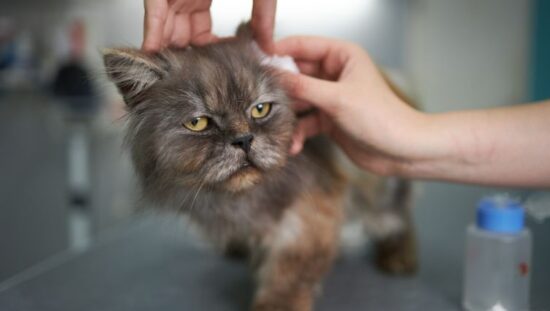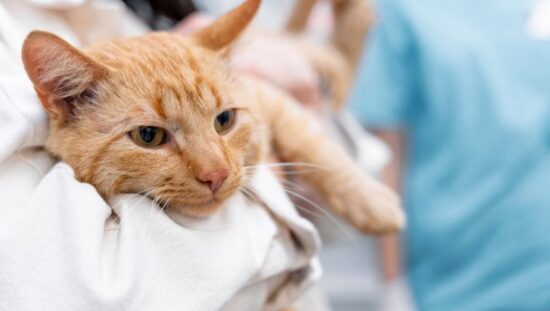Is your cat losing teeth? Cat tooth loss is a common issue that can affect your pet’s health and happiness. Learn about the causes, prevention, and care for cat tooth loss.
In this blog, we will share expert tips and guidance to ensure your feline friend’s dental health. Keep reading to help your cat maintain a healthy, pain-free smile!

Causes of Cat Tooth Loss
Cat tooth loss can be scary for any pet owner, but understanding the reasons behind it can help you take better care of your cat. A couple of factors can lead to tooth loss in cats, ranging from health issues to natural aging. Being aware of these causes can help you see potential problems early and get the right treatment to keep your cat’s mouth healthy. So, let’s explore the main causes of tooth loss in cats!
1. Dental Disease
Dental disease is one of the main causes of tooth loss in cats. This happens when plaque and tartar build up on your cat’s teeth, which then leads to infections and gum problems. Common dental diseases in cats are gingivitis, which is inflammation of the gums, and periodontitis, which is a serious infection that can damage the tissues and bones supporting the teeth.
If dental disease is not treated, it can cause your cat’s teeth to become loose and eventually fall out. Regular dental check-ups and cleanings are important to prevent these problems. You can also help by brushing your cat’s teeth at home and giving dental treats or toys that help reduce plaque build-up.
2. Injury
Injury is another common cause of tooth loss in cats. Cats can damage their teeth by chewing on hard objects, getting into fights with other animals, or having accidents like falls or collisions. These injuries can cause teeth to crack, break, or become loose.
If your cat has a dental injury, it’s important to take them to the vet as soon as possible. The vet can decide the best thing to do, which could include removing the damaged tooth or providing treatment to save it. To help prevent injuries, keep an eye on what your cat chews on and try to keep them safe from dangerous situations.
3. Aging
As cats get older, their teeth can naturally wear down and become weaker, just like ours do. Aging can lead to tooth loss because older cats are more prone to dental problems like gum disease and tooth decay. Over time, even with good care, a cat’s teeth might simply wear out and fall out.
If you want to help your aging cat maintain its dental health, you need to continue with regular vet check-ups and dental cleanings. Give your cat food that helps their teeth stay healthy, and keep an eye on their teeth and gums for any problems. With proper care, you can help your older cat keep as many teeth as possible for as long as possible.
Symptoms and Diagnosis
Knowing the signs of dental problems can help you catch issues early and prevent tooth loss. Here are some common symptoms of dental problems in cats:
- Bad breath: If your cat’s breath smells bad, it could be a sign of dental disease.
- Difficulty eating: Cats with sore teeth or gums could eat less or chew on one side of their mouth.
- Drooling: If your cat drools a lot, it might mean their teeth hurt or they have dental problems.
- Pawing at the mouth: If your cat often touches its mouth with its paws, it could mean it’s feeling uncomfortable.
- Visible tooth damage: Broken, loose, or missing teeth are clear signs of dental issues.
If you notice any of these symptoms, take your cat to the vet for a check-up and diagnosis. Early treatment can help prevent more problems and keep your cat’s teeth healthy.
Prevention Tips
By following a few simple guidelines, you can help your cat avoid common dental problems and keep their teeth strong and healthy. Here are some important tips to help protect your cat’s teeth and prevent tooth loss:
1. Regular Dental Care
Regular dental care is very important for preventing tooth loss in cats. Start by brushing your cat’s teeth at home with a toothbrush and toothpaste made for cats. Brushing helps remove plaque and prevents tartar build-up, which can lead to dental disease.
You can also give your cat dental treats and toys designed to clean their teeth as they chew. These can help reduce plaque and keep your cat’s teeth healthy. Creating a regular dental care routine will simplify dental care for both you and your cat, and keep their teeth healthy and strong.
2. Routine Veterinary Exams
During routine vet check-ups, the vet can see early signs of dental problems, such as gum disease or tooth decay, and give necessary treatments before they become serious.
Regular dental cleanings done by a vet can also help prevent plaque and tartar build-up that you might miss at home. These professional cleanings are great because they ensure your cat’s teeth and gums stay healthy, which reduces the risk of tooth loss. We advise you to schedule regular vet visits and follow their recommendations for your cat’s dental care.
3. Diet and Nutrition
Feeding your cat a balanced diet that includes dry food can help keep their teeth clean. The crunchiness of dry kibble helps reduce plaque build-up compared to soft, wet food.
There are also special dental diets available that are designed to support your cat’s oral health. These foods often have ingredients that help clean teeth. As we mentioned above, giving your cat dental treats helps keep their teeth clean as well.
Treatment Options for Cats with Tooth Loss
If your cat has already lost teeth, there are a few ways to manage their dental health:
- Dental Cleanings: As we mentioned above, your vet can recommend professional dental cleanings to remove plaque and tartar buildup, which prevents more dental problems.
- Extractions: In cases where a tooth is damaged or infected, removing the tooth may be necessary to prevent pain and infection from spreading.
- Medications: Your cat might get antibiotics for infections or pain relievers to ease discomfort after dental procedures.
- Special Diets and Treatments: Depending on your cat’s condition, your vet might recommend special diets or treatments to support dental health and prevent future problems.
Always talk with your vet to find the best treatment plan for your cat based on their specific dental needs and overall health. Regular follow-ups and dental care are important to make sure your cat is comfortable and healthy.
Frequently Asked Questions
In the list below, you will find answers to some common questions about cat dental health and tooth loss.
1. Is it normal for a cat to lose a tooth?
Yes, it can be normal for cats to lose teeth, especially as they get older. However, tooth loss can also be a sign of dental problems that need attention from a veterinarian.
2. How do cats with few or no teeth eat?
Cats are clever at adapting! Cats with few or no teeth can still eat wet or soft food easily. Some may prefer smaller pieces or pâté-style food that’s easier to chew.
3. What should you feed a cat with few or no teeth?
If your cat has few or no teeth at all, soft or moist food is best. You can also try mixing dry kibble with water to make it easier to eat. Special senior or dental diets can help cats with dental problems. Another important thing is to make sure your cat has access to fresh water.
Conclusion
Taking care of your cat’s teeth is important for their health and happiness. By understanding the causes of tooth loss, recognizing symptoms early, and following prevention tips like regular dental care, routine vet exams, and proper diet, you can help prevent tooth loss in your cat. If your cat does lose teeth, treatments like dental cleanings and special diets are available to help manage their dental health. Remember, taking your cat for regular check-ups with the vet and caring for their teeth will help keep them healthy.



